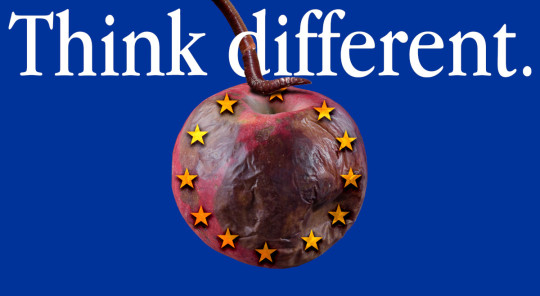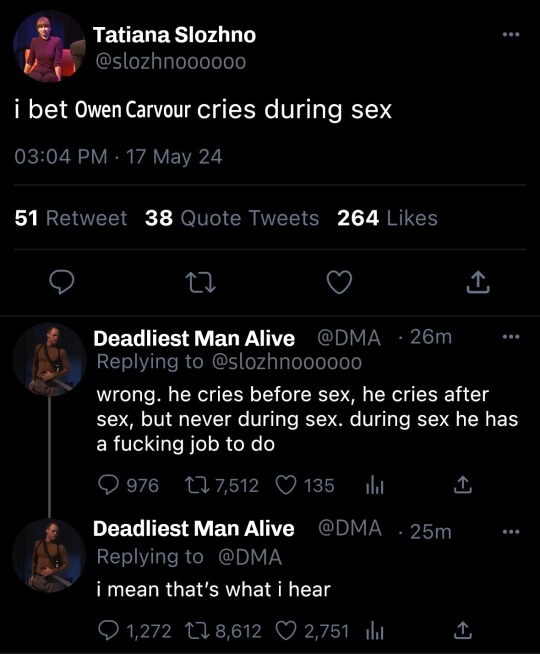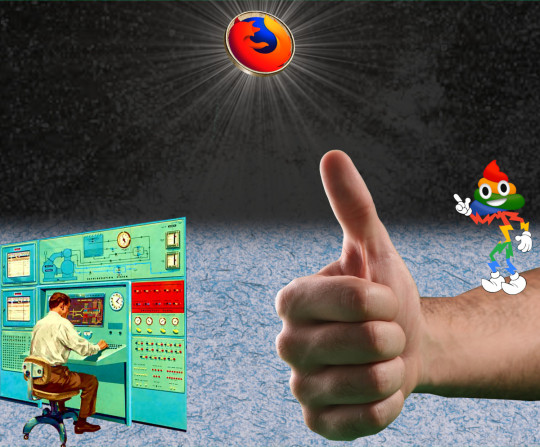#the dmas
Explore tagged Tumblr posts
Text
DMA'S praise 'amazing' Louis Tomlinson: "He's really cool, we respect him a lot"
Louis previously cited DMA'S as a heavy influence on his second solo album Faith in the Future
OFFICIAL CHARTS
By Carl Smith | 5 April 2023
When we spoke to Louis Tomlinson ahead of the release of his Number 1 album Faith in the Future last year, he couldn't have been more complimentary about collaborators DMA'S.
The Sydney rock three-piece - comprising Johnny Took, Tommy O'Dell and Matt Mason - inspired tracks like All This Time on Louis' second solo record after striking up a relationship with the One Direction star back in 2019; and the band would 'love' to see a team-up soon.
Chatting exclusively to Official Charts around the release of their brand-new LP How Many Dreams?, DMA'S guitarist Johnny explains how Louis influenced a track on their 2020 album THE GLOW.
"We got in the studio with Louis the first time we met him," says Johnny. "We sat around playing music; we played him some tracks off THE GLOW and played him the demo of Cobracaine.
"He’s obviously got a really great ear for pop music – and music in general – and he was like ‘maybe you should get to the chorus quicker.’ Just a little comment like that really helped. It was a good call, as a structural thing. We thought ‘yeah, we should get to the chorus quicker,’ and it ended up sticking."
When we tell him we admire DMA'S openness to working with an artist like Louis where many rock bands might have pre-judged his pop beginnings, Johnny explains: "When you’ve reached the heights that Louis’ reached, you’d have to be a little bit ignorant or naïve not to realise how much amazing stuff he’s picked up along the way. That’s my favourite thing.
"If I get into the studio with somebody who’s 10 years younger or 10 years older than me, I learn something new every time. That’s the great thing about any musicians getting together in a room; you just start talking and discover things through that discussion.
"Louis’ an amazing guy. He put me on the door for his gig in Melbourne, and I went backstage. We’d just played that same venue a few months before, and it was great to see him in Sydney. He’s just such a good guy. I love the way he champions young musicians. I really respect that.
"Louis’ really cool, I don’t have a bad word to say about that guy. He’s an amazing songwriter, too."

And Louis isn't the only 1D lad to have impressed Johnny and his DMA'S bandmates. Liam Payne's also an artist the group admire.
"It was the same when I first met Liam," says Johnny. "He was the same as Louis; they’re these guys that are up on this level, but they love guitar music and music in general. They’re open to championing young bands, those bands that are smaller than them, and lifting them up. They’re passionate about the music and that’s what it’s all about; everyone lifting everyone up."
[The above text has been edited.]
“It was the same when I first met Liam Gallagher," says Johnny. "He was the same as Louis; they’re these guys that are up on this level, but they love guitar music and music in general. They’re open to championing young bands, those bands that are smaller than them, and lifting them up. They’re passionate about the music and that’s what it’s all about; everyone lifting everyone up."
So we can see a DMA'S and Louis collab at some point, right?
"I’d love to," beams Johnny. "That’d be awesome."
Speaking to Official Charts about his admiration of the Aussie trio last year, Louis said: "I loved DMA’s last album THE GLOW, which Stuart Price produced. That has dance elements in it but was done in a really authentic way.
"It doesn’t feel remotely contrived or like a f**king made-for-radio pop-dance hybrid. That was really food for thought for me throughout the process.
"They’re amazing. I’ve been lucky enough to meet them a few times. Johnny [Took] came to one of my shows in Australia. They’re just really f**king lovely lads, great blokes. They’re an amazing live band."
Catch DMA'S performing at Y Not? Festival in Pikehall, Derbyshire this July.
DMA'S new album How Many Dreams? is out now via I OH YOU/MUSHROOM GROUP.

[Johnny Took and Louis Tomlinson in Melbourne, 26.7.22]
41 notes
·
View notes
Text

Day 23: I called
#inktobertale2024#second time posting this tumblr farted#anywayyy#dma i forgot what i said all in the og one i mad raaa#messed up inking the og sketchs so made this digitally#ink calling u know who#theyre fwenss :3#teehee#ink sans
1K notes
·
View notes
Text

Oh, sweet revenge.


Based on that one pic
#curtwen#owen carvour#agent curt mega#the deadliest man alive#spies are forever#saf dma#tcb saf#spies are forever fanart#tcb spies are forever#tin can bros#myart
679 notes
·
View notes
Text

spies are forever… but make it vintage 🔫🍌
#tumblr has absolutely killed the quality omg#spies are forever#saf#millie talks#tin can bros#tcb#starkid#agent curt mega#curt mega#owen carvour#joey richter#tatiana slozhno#mary kate wiles#cynthia houston#lauren lopez#barb larvernor#tessa netting#deadliest man alive#dma#joe walker#the informant#Esther fallick#brian rosenthal#art#typography#poster#musical
1K notes
·
View notes
Text
Apple to EU: “Go fuck yourself”

If you'd like an essay-formatted version of this post to read or share, here's a link to it on pluralistic.net, my surveillance-free, ad-free, tracker-free blog:
https://pluralistic.net/2024/02/06/spoil-the-bunch/#dma

There's a strain of anti-anti-monopolist that insists that they're not pro-monopoly – they're just realists who understand that global gigacorporations are too big to fail, too big to jail, and that governments can't hope to rein them in. Trying to regulate a tech giant, they say, is like trying to regulate the weather.
This ploy is cousins with Jay Rosen's idea of "savvying," defined as: "dismissing valid questions with the insider's, 'and this surprises you?'"
https://twitter.com/jayrosen_nyu/status/344825874362810369?lang=en
In both cases, an apologist for corruption masquerades as a pragmatist who understands the ways of the world, unlike you, a pathetic dreamer who foolishly hopes for a better world. In both cases, the apologist provides cover for corruption, painting it as an inevitability, not a choice. "Don't hate the player. Hate the game."
The reason this foolish nonsense flies is that we are living in an age of rampant corruption and utter impunity. Companies really do get away with both literal and figurative murder. Governments really do ignore horrible crimes by the rich and powerful, and fumble what rare, few enforcement efforts they assay.
Take the GDPR, Europe's landmark privacy law. The GDPR establishes strict limitations of data-collection and processing, and provides for brutal penalties for companies that violate its rules. The immediate impact of the GDPR was a mass-extinction event for Europe's data-brokerages and surveillance advertising companies, all of which were in obvious violation of the GDPR's rules.
But there was a curious pattern to GDPR enforcement: while smaller, EU-based companies were swiftly shuttered by its provisions, the US-based giants that conduct the most brazen, wide-ranging, illegal surveillance escaped unscathed for years and years, continuing to spy on Europeans.
One (erroneous) way to look at this is as a "compliance moat" story. In that story, GDPR requires a bunch of expensive systems that only gigantic companies like Facebook and Google can afford. These compliance costs are a "capital moat" – a way to exclude smaller companies from functioning in the market. Thus, the GDPR acted as an anticompetitive wrecking ball, clearing the field for the largest companies, who get to operate without having to contend with smaller companies nipping at their heels:
https://www.techdirt.com/2019/06/27/another-report-shows-gdpr-benefited-google-facebook-hurt-everyone-else/
This is wrong.
Oh, compliance moats are definitely real – think of the calls for AI companies to license their training data. AI companies can easily do this – they'll just buy training data from giant media companies – the very same companies that hope to use models to replace creative workers with algorithms. Create a new copyright over training data won't eliminate AI – it'll just confine AI to the largest, best capitalized companies, who will gladly provide tools to corporations hoping to fire their workforces:
https://pluralistic.net/2023/02/09/ai-monkeys-paw/#bullied-schoolkids
But just because some regulations can be compliance moats, that doesn't mean that all regulations are compliance moats. And just because some regulations are vigorously applied to small companies while leaving larger firms unscathed, it doesn't follow that the regulation in question is a compliance moat.
A harder look at what happened with the GDPR reveals a completely different dynamic at work. The reason the GDPR vaporized small surveillance companies and left the big companies untouched had nothing to do with compliance costs. The Big Tech companies don't comply with the GDPR – they just get away with violating the GDPR.
How do they get away with it? They fly Irish flags of convenience. Decades ago, Ireland started dabbling with offering tax-havens to the wealthy and mobile – they invented the duty-free store:
https://en.wikipedia.org/wiki/Duty-free_shop#1947%E2%80%931990:_duty_free_establishment
Capturing pennies from the wealthy by helping them avoid fortunes they owed in taxes elsewhere was terribly seductive. In the years that followed, Ireland began aggressively courting the wealthy on an industrial scale, offering corporations the chance to duck their obligations to their host countries by flying an Irish flag of convenience.
There are other countries who've tried this gambit – the "treasure islands" of the Caribbean, the English channel, and elsewhere – but Ireland is part of the EU. In the global competition to help the rich to get richer, Ireland had a killer advantage: access to the EU, the common market, and 500m affluent potential customers. The Caymans can hide your money for you, and there's a few super-luxe stores and art-galleries in George Town where you can spend it, but it's no Champs Elysees or Ku-Damm.
But when you're competing with other countries for the pennies of trillion-dollar tax-dodgers, any wins can be turned into a loss in an instant. After all, any corporation that is footloose enough to establish a Potemkin Headquarters in Dublin and fly the trídhathach can easily up sticks and open another Big Store HQ in some other haven that offers it a sweeter deal.
This has created a global race to the bottom among tax-havens to also serve as regulatory havens – and there's a made-in-the-EU version that sees Ireland, Malta, Cyprus and sometimes the Netherlands competing to see who can offer the most impunity for the worst crimes to the most awful corporations in the world.
And that's why Google and Facebook haven't been extinguished by the GDPR while their rivals were. It's not compliance moats – it's impunity. Once a corporation attains a certain scale, it has the excess capital to spend on phony relocations that let it hop from jurisdiction to jurisdiction, chasing the loosest slots on the strip. Ireland is a made town, where the cops are all on the take, and two thirds of the data commissioner's rulings are eventually overturned by the federal court:
https://www.iccl.ie/digital-data/iccl-2023-gdpr-report/
This is a problem among many federations, not just the EU. The US has its onshore-offshore tax- and regulation-havens (Delaware, South Dakota, Texas, etc), and so does Canada (Alberta), and some Swiss cantons are, frankly, batshit:
https://lenews.ch/2017/11/25/swiss-fact-some-swiss-women-had-to-wait-until-1991-to-vote/
None of this is to condemn federations outright. Federations are (potentially) good! But federalism has a vulnerability: the autonomy of the federated states means that they can be played against each other by national or transnational entities, like corporations. This doesn't mean that it's impossible to regulate powerful entities within a federation – but it means that federal regulation needs to account for the risk of jurisdiction-shopping.
Enter the Digital Markets Act, a new Big Tech specific law that, among other things, bans monopoly app stores and payment processing, through which companies like Apple and Google have levied a 30% tax on the entire app market, while arrogating to themselves the right to decide which software their customers may run on their own devices:
https://pluralistic.net/2023/06/07/curatorial-vig/#app-tax
Apple has responded to this regulation with a gesture of contempt so naked and broad that it beggars belief. As Proton describes, Apple's DMA plan is the very definition of malicious compliance:
https://proton.me/blog/apple-dma-compliance-plan-trap
Recall that the DMA is intended to curtail monopoly software distribution through app stores and mobile platforms' insistence on using their payment processors, whose fees are sky-high. The law is intended to extinguish developer agreements that ban software creators from informing customers that they can get a better deal by initiating payments elsewhere, or by getting a service through the web instead of via an app.
In response, Apple, has instituted a junk fee it calls the "Core Technology Fee": EUR0.50/install for every installation over 1m. As Proton writes, as apps grow more popular, using third-party payment systems will grow less attractive. Apple has offered discounts on its eye-watering payment processing fees to a mere 20% for the first payment and 13% for renewals. Compare this with the normal – and far, far too high – payment processing fees the rest of the industry charges, which run 2-5%. On top of all this, Apple has lied about these new discounted rates, hiding a 3% "processing" fee in its headline figures.
As Proton explains, paying 17% fees and EUR0.50 for each subscriber's renewal makes most software businesses into money-losers. The only way to keep them afloat is to use Apple's old, default payment system. That choice is made more attractive by Apple's inclusion of a "scare screen" that warns you that demons will rend your soul for all eternity if you try to use an alternative payment scheme.
Apple defends this scare screen by saying that it will protect users from the intrinsic unreliability of third-party processors, but as Proton points out, there are plenty of giant corporations who get to use their own payment processors with their iOS apps, because Apple decided they were too big to fuck with. Somehow, Apple can let its customers spend money Uber, McDonald's, Airbnb, Doordash and Amazon without terrorizing them about existential security risks – but not mom-and-pop software vendors or publishers who don't want to hand 30% of their income over to a three-trillion-dollar company.
Apple has also reserved the right to cancel any alternative app store and nuke it from Apple customers' devices without warning, reason or liability. Those app stores also have to post a one-million euro line of credit in order to be considered for iOS. Given these terms, it's obvious that no one is going to offer a third-party app store for iOS and if they did, no one would list their apps in it.
The fuckery goes on and on. If an app developer opts into third-party payments, they can't use Apple's payment processing too – so any users who are scared off by the scare screen have no way to pay the app's creators. And once an app creator opts into third party payments, they can never go back – the decision is permanent.
Apple also reserves the right to change all of these policies later, for the worse ("I am altering the deal. Pray I don't alter it further" -D. Vader). They have warned developers that they might change the API for reporting external sales and revoke developers' right to use alternative app stores at its discretion, with no penalties if that screws the developer.
Apple's contempt extends beyond app marketplaces. The DMA also obliges Apple to open its platform to third party browsers and browser engines. Every browser on iOS is actually just Safari wrapped in a cosmetic skin, because Apple bans third-party browser-engines:
https://pluralistic.net/2022/12/13/kitbashed/#app-store-tax
But, as Mozilla puts it, Apple's plan for this is "as painful as possible":
https://www.theverge.com/2024/1/26/24052067/mozilla-apple-ios-browser-rules-firefox
For one thing, Apple will only allow European customers to run alternative browser engines. That means that Firefox will have to "build and maintain two separate browser implementations — a burden Apple themselves will not have to bear."
(One wonders how Apple will treat Americans living in the EU, whose Apple accounts still have US billing addresses – these people will still be entitled to the browser choice that Apple is grudgingly extending to Europeans.)
All of this sends a strong signal that Apple is planning to run the same playbook with the DMA that Google and Facebook used on the GDPR: ignore the law, use lawyerly bullshit to chaff regulators, and hope that European federalism has sufficiently deep cracks that it can hide in them when the enforcers come to call.
But Apple is about to get a nasty shock. For one thing, the DMA allows wronged parties to start their search for justice in the European federal court system – bypassing the Irish regulators and courts. For another, there is a global movement to check corporate power, and because the tech companies do the same kinds of fuckery in every territory, regulators are able to collaborate across borders to take them down.
Take Apple's app store monopoly. The best reference on this is the report published by the UK Competition and Markets Authority's Digital Markets Unit:
https://assets.publishing.service.gov.uk/media/63f61bc0d3bf7f62e8c34a02/Mobile_Ecosystems_Final_Report_amended_2.pdf
The devastating case that the DMU report was key to crafting the DMA – but it also inspired a US law aimed at forcing app markets open:
https://www.congress.gov/bill/117th-congress/senate-bill/2710
And a Japanese enforcement action:
https://asia.nikkei.com/Business/Technology/Japan-to-crack-down-on-Apple-and-Google-app-store-monopolies
And action in South Korea:
https://www.reuters.com/technology/skorea-considers-505-mln-fine-against-google-apple-over-app-market-practices-2023-10-06/
These enforcers gather for annual meetings – I spoke at one in London, convened by the Competition and Markets Authority – where they compare notes, form coalitions, and plan strategy:
https://www.eventbrite.co.uk/e/cma-data-technology-and-analytics-conference-2022-registration-308678625077
This is where the savvying breaks down. Yes, Apple is big enough to run circles around Japan, or South Korea, or the UK. But when those countries join forces with the EU, the USA and other countries that are fed up to the eyeballs with Apple's bullshit, the company is in serious danger.
It's true that Apple has convinced a bunch of its customers that buying a phone from a multi-trillion-dollar corporation makes you a member of an oppressed religious minority:
https://pluralistic.net/2024/01/12/youre-holding-it-wrong/#if-dishwashers-were-iphones
Some of those self-avowed members of the "Cult of Mac" are willing to take the company's pronouncements at face value and will dutifully repeat Apple's claims to be "protecting" its customers. But even that credulity has its breaking point – Apple can only poison the well so many times before people stop drinking from it. Remember when the company announced a miraculous reversal to its war on right to repair, later revealed to be a bald-faced lie?
https://pluralistic.net/2023/09/22/vin-locking/#thought-differently
Or when Apple claimed to be protecting phone users' privacy, which was also a lie?
https://pluralistic.net/2022/11/14/luxury-surveillance/#liar-liar
The savvy will see Apple lying (again) and say, "this surprises you?" No, it doesn't surprise me, but it pisses me off – and I'm not the only one, and Apple's insulting lies are getting less effective by the day.

Image: Alex Popovkin, Bahia, Brazil from Brazil (modified) https://commons.wikimedia.org/wiki/File:Annelid_worm,_Atlantic_forest,_northern_littoral_of_Bahia,_Brazil_%2816107326533%29.jpg
CC BY 2.0 https://creativecommons.org/licenses/by/2.0/deed.en
--
Hubertl (modified) https://commons.wikimedia.org/wiki/File:2015-03-04_Elstar_%28apple%29_starting_putrefying_IMG_9761_bis_9772.jpg
CC BY-SA 4.0 https://creativecommons.org/licenses/by-sa/4.0/deed.en
#pluralistic#apple#malicious compliance#dma#digital markets act#eu#european union#federalism#corporatism#monopolies#trustbusting#regulation#protonmail#junk fees#cult of mac#interoperability#browser wars#firefox#mozilla#webkit#browser engines
602 notes
·
View notes
Text





I was re-listening to “The Torture Tango” and Owen is stronger than all of us honestly
#dma truly has an absolute iron will#if my ex whimpered like that while I was torturing I would simply cave#I think you can forget about the murder for a sec#spies are forever#fanart#owen carvour#agent Owen carvour#tin can bros#agent curt mega#curtwen#starkid#cowen
819 notes
·
View notes
Text

Curtwen Week Day 5: Disguise
#ok so here’s the dealio yall#I tried to do like- legit lineart but it was NOT working out no matter how many times I tried#so I just colored in and shaded the sketch#I half assed it sure#but I needed something to post today#and thus we have this#I wasn’t going to waste brain cells y’know#trying my best not to burnout#cause lemme tell yall I’m not far from it#but I refuse#I won’t let it get me#I’ve still got two more days to draw for#and then hfff next week#and then art fight#and then Saf AUgust#and then pulp fortnight#so burnout is NOT an option for me#I’m not allowed#fun fact: the yo-yo was originally used as a hunting weapon#that’s a good one I like that one#curtwen week#Curtwen week 2024#spies are forever#tin can bros#tin can brothers#the deadliest man alive#dma#Owen carvour#Joey richter#my art
207 notes
·
View notes
Text
either this is my best work yet, or I'm sorry

245 notes
·
View notes
Text

There is nothing gayer than men torturing other men while talking to them I will die on this hill
217 notes
·
View notes
Text

WHO ALLOWED THEM TO DO THIS
god bless @smytherines for the high quality saf screenshots 🙏🙏🙏
#owen babe do you wanna torture this man or fuck him#spies are forever#tin can bros#saf#art#fanart#saf fanart#owen carvour#agent curt mega#spies are forever fanart#tin can bros fanart#tcb#tcb fanart#curtwen#the deadliest man alive#dma
270 notes
·
View notes
Text



Body Harvest DMA Design / Midway Nintendo 64 1998
#body harvest#DMA design#midway#nintendo 64#sci-fi game#sandbox#TPS#third person shooter#vehicular combat#90s#N64
78 notes
·
View notes
Text

Louis liked this IG post from the DMAs [21.9.2023]
14 notes
·
View notes
Text

For @actuallysaiyan because you're my bestie and deserve the world! ❤️
A/N: Just some soft/fluffy drabbles for Dante, Vergil, Nero, and Sparada x reader
Warnings: lots and lots of fluff, slight angst, mentions of pregnancy in Sparda's drabble, suggestive themes but nothing explicit, fem!reader


Dante
The setting sun lowers against the horizon. The bedroom slowly grows darker and darker. The passing time doesn’t bother you because right now you’re suspended in the most loving moment you can imagine. It wasn’t difficult for you to talk Dante into sharing a lazy day spent mostly in bed with you. He didn’t have any pending missions today, and the one time the phone rang he blissfully ignored it in favor of pressing the sweetest kisses on every inch of your exposed thighs, enjoying the trembling muscles and the soft gasps that left you every time he inched closer to where you needed him most.
Now, as the sun goes down, he’s hovering over you. Your hands card through his messy white hair, and you admire the way the evening sun reflects on his snowy eyelashes. The blue of his eyes shines even brighter in this light. His lips curl into a mischievous smirk when he notices the softness of your features as you look up at him.
“You like what you see, sweetheart?” he asks.
“So much,” you giggle. “You’re beautiful, Dante.��
He turns his head, the thick curtain of hair concealing the blush on his cheeks. This gives him time to seek solace in the soft curve of your neck, and he takes the chance to kiss your skin softly to make it seem like this was his intention all along. You massage his neck and shoulders, and all the while you can hear him purring softly. Finally, he looks at you again.
“Baby, can I make love to you?”
You’re surprised he’s only just now asking. His body is burning to finally make love to you. All day long, you’ve been caught in this haze together. You turn each other on over and over, but neither wanted to break the spell by suggesting you finally take him inside of you.
“Please, baby,” you kiss him softly. “I want you.”
Dante lines himself up at your entrance. He takes his time teasing you both by prodding your hole with his leaking cockhead. As he slips into you, inch by inch, you’re both panting and gasping over how good it feels. Your walls just open up to him with such ease. You can tell by the slow roll of his hips, that Dante doesn’t intend on rushing things at all. You spent all day laying around together, touching each other, and kissing. Now, he’s quite happy to make love to you all night long.


Vergil
You’re happily seated on Vergil’s lap. One of his arms is wrapped securely around your waist and the other is holding his book open as he reads to you. The poetry falls from his lips like honey. As he turns the page, he kisses your temple softly. You’d found him sitting in here reading happily by the window. You’d slipped into his lap, and he was so enraptured by his reading that he’d barely noticed. His arm went around you almost by instinct, and he continued reading. It wasn’t until you’d looked up at him with your wide eyes and a sweet smile, and asked oh so nicely for it, that he began reading to you. Hours have passed now, with him reading quiet, romantic poetry to you. Your eyes are heavy and you let out a soft yawn.
“Do you need a break, sparrow?” he asks softly.
“No, keep going,” you smile up at him.
“As you wish,” he kisses your forehead softly.
He starts a new poem, and you’re hanging on as long as you can. Vergil holds onto you a little tighter as your body goes weak against him. He’s barely made it to the third stanza when he realizes you’ve fallen asleep. He chuckles softly at the sight of you sleeping in his arms.
“I suppose that wasn’t one of your favorites,” he quips to himself.
He closes the book and sets it on the small side table. He lets you sleep on him for a little while, then gently carries you to your shared bedroom. He lays you down on the bed and kisses your forehead before tucking you in.
When you wake up hours later, you pout at the prospect of being alone in bed. You get up and wrap yourself up in a blanket. You can vaguely smell something cooking in the kitchen. As you walk in, you’re greeted by the sight of Vergil wearing the light blue apron you’d playfully bought him that says “Kiss the Cook” on the front. He has a cookbook open and propped up on some cans. You realize he’s trying to make your favorite dish.


Nero
Nero has been away from home much longer than either of you would’ve liked for him to be. Finally, one morning, he makes the phone call you’ve been waiting for. He tells you he’s on his way home, only interrupting once to tell Nico to “can it” as she teases him for how soft he is for you. He’ll be home by the end of the day. You decide to call in to work so you can be home when he arrives, then you set about making all kinds of preparations. Starting with making him a cake, chocolate with raspberry swirl. You put a roast chicken in the oven and put a bottle of wine in the fridge to chill. Then, as it gets closer to time for him to arrive, you take a long shower and slip into his favorite of your silky nighties and a long robe. You put on a bit of makeup to look your best for him.
However, you wait and wait for him. The chicken gets done, and you don’t even know if you should bother waiting for the sides. With a sad sigh, you wrap up all the food and put it away. You make yourself a sandwich and munch it down before going to bed.
It’s past midnight when the front door opens. Nero is sheepish as he walks into the living room, expecting you to be worriedly waiting in the living room Instead, there’s no sight of you. He goes to the kitchen and sees the table all set for a romantic dinner that didn’t happen, and his heart drops.
He goes upstairs and sees you sleeping peacefully in the bed you share. As quietly as he can manage, he undresses before sliding into the bed beside you. He’d tried to tell himself he wouldn’t wake you, but now that you’re in reach he’s not sure he can resist. He wraps his arm around your waist and pulls you closer to him. You feel his lips against your shoulder as you begin to stir awake.
“Baby?” you ask softly.
“It’s me, angel. I’m sorry I was so late,” he cuddles against you, pressing his face against your neck. “The van broke down and we were fixing it.”
“Oh! Baby,” you roll over in his arms and begin kissing him so sweetly. Nero just melts into your soft touch. You cup his cheek, “I’m so sorry, baby.”
“I’m home now, angel. That’s all that matters.”


Sparda
Your eyes are wide as you take in every detail of the vast castle. Sparda’s large hand envelops yours completely as he gives you the grand tour. Sparda can’t remember the last time he invited someone here, although he guesses that’s to be expected. It’s been centuries since he stayed at the Fortuna castle last. After his sons found him in the underworld, he came to this place. He wasn’t sure what he expected to find in Fortuna. Perhaps just a peaceful place to die if nothing else. Instead he found you. You’d begun by delivering him supplies. One rainy day, he’d invited you inside to warm yourself up by the fire in the large entrance hall. He’d served you tea and cookies, and found himself genuinely enjoying your company. As time went on, he invited you in more and more often when you stopped by for your deliveries. Like most on the island, you’d been raised to view him as a god. However, you’d quickly moved past that when you realized how much you enjoyed his company.
A little at a time, the Dark Knight began to fall in love with you. You shared his feelings in abundance. When the time came for him to invite you to move into the castle with him, he’d felt quite nervous about the whole ordeal. You’d accepted with a kind smile and a sweet kiss. Love was in the air. Today he was giving you the tour, and tomorrow you would call this castle home.
He walked you through the vast libraries and gallery halls. Then, he walked you into the residence halls. He showed you the master bedroom first, then the nearby guest rooms. They were furnished so beautifully, but the emptiness of them hit your heart with sadness.
“We can find uses for them,” he says as he leans down to kiss your cheek.
“Maybe we could turn one into a nursery?” you suggest with a playful wink.
For a moment, Sparda is truly flabbergasted. His eyes widen as he stares down at you, trying to piece together if you’re serious or not. He hadn’t considered having more children. Would he only let them down the way he did Dante and Vergil? You cuddle against him and giggle.
“Only when we’re ready, of course?”
“So,” he smirks, “You truly wish to carry my child?”
“Of course!”
He hoists you up in his arms and begins to carry you towards the master bedroom once more.
“There’s no harm in trying,” he says.
#dante x reader#vergil x reader#nero x reader#sparda x reader#devil may cry fanfiction#dante dmc x reader#vergil dmc x reader#nero dmc x reader#sparda dma x reader#devil may cry x reader#devil may cry#dante#sparda#vergil#nero#🌟written in the stars
1K notes
·
View notes
Text

Genuinely obsessed with them
#curtwen#the deadliest man alive#dma#agent curt mega#owen carvour#spies are forever#ghostwen beloved#dma x curt au
114 notes
·
View notes
Text


you’ll change your name or change your mind, and leave this fucked up place behind, but I’ll know, I’ll know…
#honey you’re familiar like my mirror years ago#etc etc#do you see what I’m SAYING#they make me cry always#spies are forever#saf#tin can brothers#tin can bros#tcb#agent curt mega#owen carvour#curt mega#joey richter#deadliest man alive#dma#joe walker#curtwen#millie talks
806 notes
·
View notes
Text
The paradox of choice screens

I'm coming to BURNING MAN! On TUESDAY (Aug 27) at 1PM, I'm giving a talk called "DISENSHITTIFY OR DIE!" at PALENQUE NORTE (7&E). On WEDNESDAY (Aug 28) at NOON, I'm doing a "Talking Caterpillar" Q&A at LIMINAL LABS (830&C).

It's official: the DOJ has won its case, and Google is a convicted monopolist. Over the next six months, we're gonna move into the "remedy" phase, where we figure out what the court is going to order Google to do to address its illegal monopoly power:
https://pluralistic.net/2024/08/07/revealed-preferences/#extinguish-v-improve
That's just the beginning, of course. Even if the court orders some big, muscular remedies, we can expect Google to appeal (they've already said they would) and that could drag out the case for years. But that can be a feature, not a bug: a years-long appeal will see Google on its very best behavior, with massive, attendant culture changes inside the company. A Google that's fighting for its life in the appeals court isn't going to be the kind of company that promotes a guy whose strategy for increasing revenue is to make Google Search deliberately worse, so that you will have to do more searches (and see more ads) to get the info you're seeking:
https://pluralistic.net/2024/04/24/naming-names/#prabhakar-raghavan
It's hard to overstate how much good stuff can emerge from a company that's mired itself in antitrust hell with extended appeals. In 1982, IBM wriggled off the antitrust hook after a 12-year fight that completely transformed the company's approach to business. After more than a decade of being micromanaged by lawyers who wanted to be sure that the company didn't screw up its appeal and anger antitrust enforcers, IBM's executives were totally transformed. When the company made its first PC, it decided to use commodity components (meaning anyone could build a similar PC by buying the same parts), and to buy its OS from an outside vendor called Micros-Soft (meaning competing PCs could use the same OS), and it turned a blind eye to the company that cloned the PC ROM, enabling companies like Dell, Compaq and Gateway to enter the market with "PC clones" that cost less and did more than the official IBM PC:
https://www.eff.org/deeplinks/2019/08/ibm-pc-compatible-how-adversarial-interoperability-saved-pcs-monopolization
The big question, of course, is whether the court will order Google to break up, say, by selling off Android, its ad-tech stack, and Chrome. That's a question I'll address on another day. For today, I want to think about how to de-monopolize browsers, the key portal to the internet. The world has two extremely dominant browsers, Safari and Chrome, and each of them are owned by an operating system vendor that pre-installs their own browser on their devices and pre-selects them as the default.
Defaults matter. That's a huge part of Judge Mehta's finding in the Google case, where the court saw evidence from Google's own internal research suggesting that people rarely change defaults, meaning that whatever the gadget does out of the box it will likely do forever. This puts a lie to Google's longstanding defense of its monopoly power: "choice is just a click away." Sure, it's just a click away – a click, you're pretty sure no one is ever going to make.
This means that any remedy to Google's browser dominance is going to involve a lot of wrangling about defaults. That's not a new wrangle, either. For many years, regulators and tech companies have tinkered with "choice screens" that were nominally designed to encourage users to try out different browsers and brake the inertia of the big two browsers that came bundled with OSes.
These choice screens have a mixed record. Google's 2019 Android setup choice screen for the European Mobile Application Distribution Agreement somehow managed to result in the vast majority of users sticking with Chrome. Microsoft had a similar experience in 2010 with BrowserChoice.eu, its response to the EU's 2000s-era antitrust action:
https://en.wikipedia.org/wiki/BrowserChoice.eu
Does this mean that choice screens don't work? Maybe. The idea of choice screens comes to us from the "choice architecture" world of "nudging," a technocratic pseudoscience that grew to prominence by offering the promise that regulators could make big changes without having to do any real regulating:
https://verfassungsblog.de/nudging-after-the-replication-crisis/
Nudge research is mired in the "replication crisis" (where foundational research findings turn out to be nonreplicable, due to bad research methodology, sloppy analysis, etc) and nudge researchers keep getting caught committing academic fraud:
https://www.ft.com/content/846cc7a5-12ee-4a44-830e-11ad00f224f9
When the first nudgers were caught committing fraud, more than a decade ago, they were assumed to be outliers in an otherwise honest and exciting field:
https://www.npr.org/2016/10/01/496093672/power-poses-co-author-i-do-not-believe-the-effects-are-real
Today, it's hard to find much to salvage from the field. To the extent the field is taken seriously today, it's often due to its critics repeating the claims of its boosters, a process Lee Vinsel calls "criti-hype":
https://sts-news.medium.com/youre-doing-it-wrong-notes-on-criticism-and-technology-hype-18b08b4307e5
For example, the term "dark patterns" lumps together really sneaky tactics with blunt acts of fraud. When you click an "opt out of cookies" button and get a screen that says "Success!" but which has a tiny little "confirm" button on it that you have to click to actually opt out, that's not a "dark pattern," it's just a scam:
https://pluralistic.net/2022/03/27/beware-of-the-leopard/#relentless
By ascribing widespread negative effects to subtle psychological manipulation ("dark patterns") rather than obvious and blatant fraud, we inadvertently elevate "nudging" to a real science, rather than a cult led by scammy fake scientists.
All this raises some empirical questions about choice screens: do they work (in the sense of getting people to break away from defaults), and if so, what's the best way to make them work?
This is an area with a pretty good literature, as it turns out, thanks in part due to some natural experiments, like when Russia forced Google to offer choice screens for Android in 2017, but didn't let Google design that screen. The Russian policy produced a significant switch away from Google's own apps to Russian versions, primarily made by Yandex:
https://cepr.org/publications/dp17779
In 2023, Mozilla Research published a detailed study in which 12,000 people from Germany, Spain and Poland set up simulated mobile and desktop devices with different kinds of choice screens, a project spurred on by the EU's Digital Markets Act, which is going to mandate choice screens starting this year:
https://research.mozilla.org/browser-competition/choicescreen/
I'm spending this week reviewing choice screen literature, and I've just read the Mozilla paper, which I found very interesting, albeit limited. The biggest limitation is that the researchers are getting users to simulate setting up a new device and then asking them how satisfied they are with the experience. That's certainly a question worth researching, but a far more important question is "How do users feel about the setup choices they made later, after living with them on the devices they use every day?" Unfortunately, that's a much more expensive and difficult question to answer, and beyond the scope of this paper.
With that limitation in mind, I'm going to break down the paper's findings here and draw some conclusions about what we should be looking for in any kind of choice screen remedy that comes out of the DOJ antitrust victory over Google.
The first thing note is that people report liking choice screens. When users get to choose their browsers, they expect to be happy with that choice; by contrast, users are skeptical that they'll like the default browser the vendor chose for them. Users don't consider choice screens to be burdensome, and adding a choice screen doesn't appreciably increase setup time.
There are some nuances to this. Users like choice screens during device setup but they don't like choice screens that pop up the first time they use a browser. That makes total sense: "choosing a browser" is colorably part of the "setting up your gadget" task. By contrast, the first time you open a browser on a new device, it's probably to get something else done (e.g. look up how to install a piece of software you used on your old device) and being interrupted with a choice screen at that moment is an unwelcome interruption. This is the psychology behind those obnoxious cookie-consent pop-ups that website bombard you with when you first visit them: you've clicked to that website because you need something it has, and being stuck with a privacy opt-out screen at that moment is predictably frustrating (which is why companies do it, and also why the DMA is going to punish companies that do).
The researchers experimented with different kinds of choice screens, varying the number of browsers on offer and the amount of information given on each. Again, users report that they prefer more choices and more information, and indeed, more choice and more info is correlated with choosing indie, non-default browsers, but this effect size is small (<10%), and no matter what kind of choice screen users get, most of them come away from the experience without absorbing any knowledge about indie browsers.
The order in which browsers are presented has a much larger effect than how many browsers or how much detail is present. People say they want lots of choices, but they usually choose one of the first four options. That said, users who get choice screens say it changes which browser they'd choose as a default.
Some of these contradictions appear to stem from users' fuzziness on what "default browser" means. For an OS vendor, "default browser" is the browser that pops up when you click a link in an email or social media. For most users, "default browser" means "the browser pinned to my home screen."
Where does all this leave us? I think it cashes out to this: choice screens will probably make a appreciable, but not massive, difference in browser dominance. They're cheap to implement, have no major downsides, and are easy to monitor. Choice screens might be needed to address Chrome's dominance even if the court orders Google to break off Chrome and stand it up as a separate business (we don't want any browser monopolies, even if they're not owned by a search monopolist!). So yeah, we should probably make a lot of noise to the effect that the court should order a choice screen, as part of a remedy.
That choice screen should be presented during device setup, with the choices presented in random order – with this caveat: Chrome should never appear in the top four choices.
All of that would help address the browser duopoly, even if it doesn't solve it. I would love to see more market-share for Firefox, which is the browser I've used every day for more than a decade, on my laptop and my phone. Of course, Mozilla has a role to play here. The company says it's going to refocus on browser quality, at the expense of the various side-hustles it's tried, which have ranged from uninteresting to catastrophically flawed:
https://www.fastcompany.com/91167564/mozilla-wants-you-to-love-firefox-again
For example, there was the tool to automatically remove your information from scummy data brokers, that they outsourced to a scummy data-broker:
https://www.theverge.com/2024/3/22/24109116/mozilla-ends-onerep-data-removal-partnership
And there's the "Privacy Preserving Attribution" tracking system that helps advertisers target you with surveillance advertising (in a way that's less invasive than existing techniques). Mozilla rolled this into Firefox on an opt out basis, and made opting out absurdly complicated, suggesting that it knew that it was imposing something on its users that they wouldn't freely choose:
https://blog.privacyguides.org/2024/07/14/mozilla-disappoints-us-yet-again-2/
They've been committing these kinds of unforced errors for more than a decade, seeking some kind of balance between monopolistic web companies and its users' desire to have a browser that protects them from invasive and unfair practices:
https://www.theguardian.com/technology/2014/may/14/firefox-closed-source-drm-video-browser-cory-doctorow
These compromises represent the fallacy that Mozilla's future depends on keeping bullying entertainment companies and Big Tech happy, so it can go on serving its users. At the same time, these compromises have alienated Mozilla's core users, the technical people who were its fiercest evangelists. Those core users are the authority on technical questions for the normies in their life, and they know exactly how cursed it is for Moz to be making these awful compromises.
Moz has hemorrhaged users over the past decade, meaning they have even less leverage over the corporations demanding that they make more compromises. This sets up a doom loop: make a bad compromise, lose users, become more vulnerable to demands for even worse compromises. "This capitulation puts us in a great position to make a stand in some hypothetical future where we don't instantly capitulate again" is a pretty unconvincing proposition.
After the past decade's heartbreaks, seeing Moz under new leadership makes me cautiously hopeful. Like I say, I am dependent on Firefox and want an independent, principled browser vendor that sees their role as producing a "user agent" that is faithful to its users' interests above all else:
https://pluralistic.net/2024/05/07/treacherous-computing/#rewilding-the-internet
Of course, Moz depends on Google's payment for default search placement for 90% of its revenue. If Google can't pay for this in the future, the org is going to have to find another source of revenue. Perhaps that will be the EU, or foundations, or users. In any of these cases, the org will find it much easier to raise funds if it is standing up for its users – not compromising on their interests.

Community voting for SXSW is live! If you wanna hear RIDA QADRI and me talk about how GIG WORKERS can DISENSHITTIFY their jobs with INTEROPERABILITY, VOTE FOR THIS ONE!

If you'd like an essay-formatted version of this post to read or share, here's a link to it on pluralistic.net, my surveillance-free, ad-free, tracker-free blog:
https://pluralistic.net/2024/08/12/defaults-matter/#make-up-your-mind-already

Image: ICMA Photos (modified) https://www.flickr.com/photos/icma/3635981474/
CC BY-SA 2.0 https://creativecommons.org/licenses/by-sa/2.0/
#pluralistic#choice screens#dma#eu#scholarship#ux#behavioral economics#mozilla#remedies#browsers#mobile#defaults matter#google#doj v google
204 notes
·
View notes